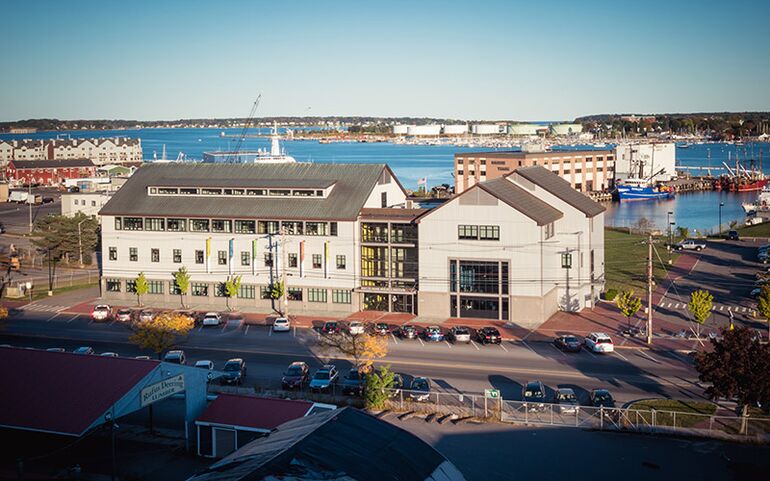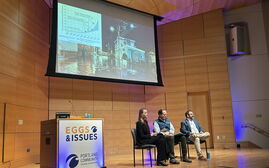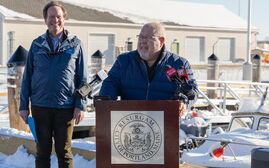Gulf of Maine Research Institute receives $790K grant to study impact of warming ocean on key species
 Courtesy / Gulf of Maine Research Institute
The Gulf of Maine Research Institute, which successfully completed last year its five-year Campaign for the Gulf of Maine raising $22.8 million to support its research and educational activities, has received a $789,659 grant from the National Science Foundation. The grant will fund research on the impact of a warming climate on the growth and population patters in cod and lobster in the Gulf of Maine.
Courtesy / Gulf of Maine Research Institute
The Gulf of Maine Research Institute, which successfully completed last year its five-year Campaign for the Gulf of Maine raising $22.8 million to support its research and educational activities, has received a $789,659 grant from the National Science Foundation. The grant will fund research on the impact of a warming climate on the growth and population patters in cod and lobster in the Gulf of Maine.
The National Science Foundation awarded the Gulf of Maine Research Institute a $789,659 grant to examine the impact of a warming climate on growth and population patterns in cod and lobster in the Gulf of Maine.
The study will also document marine habitat shifts across the northwest Atlantic caused by rising temperatures, according to a March 4 news release issued jointly by the offices of U.S. Sens. Susan Collins, R-Maine, and Angus King, I-Maine.
The funding will aid the institute in its work to better understand and mitigate the impacts of changing ocean conditions on Maine communities, marine ecosystems and economy, King and Collins said in the release.
The grant was awarded through the National Science Foundation’s Division of Ocean Sciences.
Scientists from the institute were significant contributors in the Fourth National Climate Assessment, published by the federal government last November, according to a Jan. 7 news release. Mandated by Congress starting in 1990, the report assesses climate change impacts across the U.S., now and throughout the century.
The GMRI’s chief scientific officer, Andrew Pershing, was the lead author for the report’s “oceans and marine resources” chapter, which included work by research scientist Kathy Mills on the oceans-related content. Mills and Pershing later published a paper on an extreme warming event in 2012. This was one of the first times the term “heat wave” was used in the ocean context. Since then, the U.S. experienced heat waves in the Caribbean, North Pacific, Alaska, and twice again in the Northeast. The events affected ecosystems, species and people along the coast. The report describes the economic importance of fisheries and their vulnerability to rising temperatures.
Last June, the institute successfully completed its five-year Campaign for the Gulf of Maine, raising $22.8 million to support its research and educational activities. New endowment funds provide long-term support for:
- Senior scientists and marine research focused on the Gulf of Maine ecosystem
- Science education to benefit students and teachers from all 16 of Maine's counties
- Institutional leadership positions.













Comments